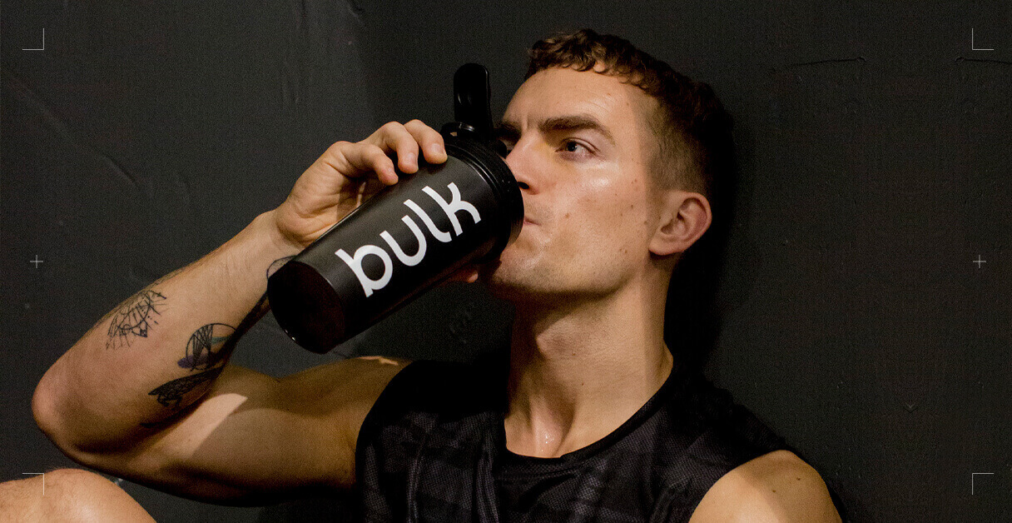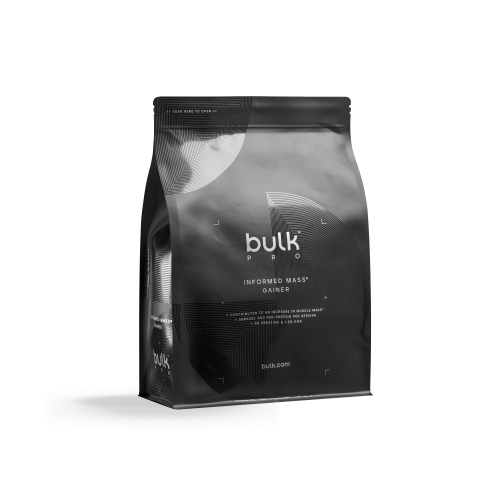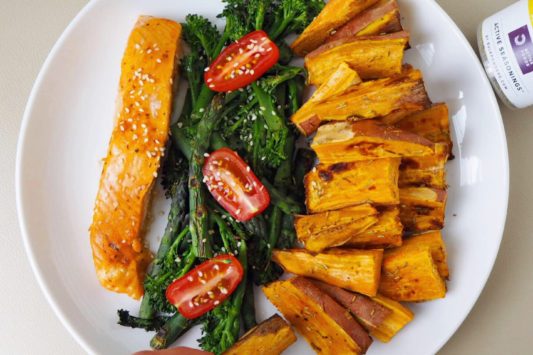Protein powders are a popular and convenient source of quality protein. However, there are many misconceptions and protein myths surrounding this nutritional supplement. Here we’ll dispel these myths and uncover the truth about protein shakes.
As you might know, protein is a powerful macronutrient made up of amino acids (the building blocks of muscle) essential for maintaining good health, growth, and recovery. For this reason, it’s important to consume enough high-quality protein, especially if you are active, to ensure your body has the necessary amino acids to function effectively.
Will I Bulk up if I Have Protein Supplements?
This is one of the most common misconceptions, with many people associating protein shakes with old stereotypes of bulked-up bodybuilders. The truth is protein shakes alone won’t make you “bulk up” and gain huge amounts of mass. If protein shakes are used alongside a high-calorie diet and paired with consistent, challenging resistance training, these factors together can contribute to gaining muscle mass. If you’re looking to use protein supplements to help you bulk up, a mass gainer would be a good choice.
Another frequently asked question is “do protein shakes make you gain weight?” The answer is again no, protein shakes alone won’t lead to weight gain. They’re generally low-calorie and low-fat, and gaining weight is entirely dependent on how many calories you consume overall daily vs how many calories you burn. Digesting protein burns around 25 calories per 100g consumed, whereas digesting carbohydrates and fat burns around 10 to 15 calories per 100g. This is known as the thermic effect of food (TEF).
In fact, studies have shown that protein shakes can be beneficial to support weight loss and to maintain weight. Due to the high thermic effect of protein among other factors, there’s evidence that a high protein intake can boost metabolism and lead to burning more calories throughout the day, and even during sleep! Protein is highly satiating, so it can reduce the appetite by keeping you feeling fuller for longer. That’s very helpful if you’re trying to lose weight.
Protein Powder is Expensive
Protein powders can vary significantly in price. This often depends on the brand, type of protein, and the purity of the protein powder. For those not following a plant-based diet, whey is the most popular form of protein powder. When you consider the sheer amount of protein per serving (generally around 25-30g per scoop), this can work out cheaper than buying the equivalent in chicken breast or steak. This being said, protein shakes should never be used to replace whole foods entirely and should be used as an addition to supplement a balanced diet.
Vegan Protein Isn’t as Effective as Normal Protein
Plant-based protein powders can be incredibly helpful for vegans to hit protein goals and gain optimal results from training. However, when it comes to protein, not all sources are equal. Animal-derived proteins are known as “complete” protein sources because they provide all 9 essential amino acids that our bodies can’t create. That’s why we need to get them from food. Plant-based proteins are known as “incomplete” protein sources because they don’t contain all of the essential amino acids, or just a small amount of them.
However, vegan protein can be as effective as more traditional protein sources such as whey or casein when different plant sources are combined in the correct way (such as pea protein with brown rice protein). Combining plant-based sources offers the essential amino acids the body needs, albeit in lower quantities. When comparing the essential amino acid profile of vegan proteins and whey, gram-for-gram whey still comes out on top with around 20-30% more BCAA’s (branched-chain amino acids). Therefore, to gain the same quantity of amino acids as whey, a larger quantity of vegan protein powder is needed. However, this can be spread throughout the day and doesn’t need to be consumed in one shake or meal.
Protein Has to be consumed straight After A Workout
This is a classic myth based around the “metabolic window” theory. It states you must consume protein within a 30-minute window post-exercise to gain the muscle-building benefits. While there’s some evidence to support that consuming protein shortly after exercise in a fasted state (before eating anything) is beneficial, most experts agree that consuming a protein shake immediately after exercise is of less significance than the overall amount of protein you consume throughout the day. So, if you’ve eaten some protein before exercise, don’t sweat it if you don’t have a shake immediately after. As long as you eat enough protein throughout the day you will still reap the benefits.
For a deeper dive into protein timing, you can read more about it here.
Protein is Just for Bodybuilders
While it’s true that bodybuilders and athletes use protein supplements to support their training and goals, this doesn’t mean that the benefits of protein are exclusively available to them. Everybody can benefit from protein. The amino acids in protein are the building blocks of all of our bodies.
Aside from helping with recovery post-exercise and building muscle, our bodies use protein for countless processes. That includes the release of hormones that control appetite and food intake. Studies show that protein decreases the level of ghrelin (known as the “hunger hormone”) and stimulates the production of hormones which can help you feel full. The body also uses protein to help grow healthy hair, nails and skin, support energy levels and even helps to reduce blood pressure.
Using protein for bodybuilding is a staple in the diets of bodybuilders. However, it takes far more than protein supplements alone to develop a huge “mass monster” physique. Many bodybuilders achieve their impressive size as a result of having incredible genetics, paired with a regimented high-calorie, high-protein, (often low-fat) diet and consistent, strategic training.
The Body Can Only Absorb 30g of Protein at one Time.
How much protein your body can absorb at once is a widely debated topic. It’s been claimed that the body can only “process” or “absorb” a limited amount of protein at any one time. Consuming more than 30g in one sitting was considered a waste as any additional protein would be excreted from the body rather than being absorbed. However, studies have shown that the human body is more complex than this and muscle protein synthesis continues for up to 24-hours after training. The body determines the rate of absorption of nutrients depending on several factors. For example, if you were to have a large meal with 50g protein, your body would know to slow down digestion in order to effectively absorb the nutrients.
This being said, it’s still beneficial to spread your protein out throughout the day in your meals, snacks and shakes. That way you can avoid digestive discomfort and bloating that eating huge quantities of protein in one sitting can create.
Final Word
For decades protein shakes have been popular among bodybuilders, athletes, and gym-goers alike thanks to their ability to help with recovery and muscle-building. However, protein shakes can also be beneficial for many other purposes including weight loss and producing hormones which help to curb cravings and make you feel fuller for longer. There are many different types of protein powders so check the label to make sure you find the best one for your needs.
Of course, we couldn’t leave you without some suggestions. Click to the side panel for some of our favourite protein powders and supplements to support your goals and diet. For more nutrition tips, recipes and ambassador workouts, check out @bulk and get involved in the conversation by tagging #TeamBulk and be part of our community.
ABOUT THE AUTHOR
Stephanie Yates is a nutrition coach and writer with a BSc in Food and Nutrition. She utilises her knowledge and passion for nutrition and fitness to deliver evidence-based, informative articles and guidance, helping others meet their fitness and health goals to feel their best – inside and out. You can find her on Instagram @electricmango__ for more fitness and nutrition tips.
References
Aragon, A. and Schoenfeld, B., 2013. Nutrient timing revisited: is there a post-exercise anabolic window? Journal of the International Society of Sports Nutrition, 10(1).
Belza, A., Ritz, C., Sørensen, M.Q., Holst, J.J., Rehfeld, J.F. and Astrup, A. (2013). Contribution of gastroenteropancreatic appetite hormones to protein-induced satiety. The American Journal of Clinical Nutrition, 97(5), pp.980–989.
Bowen, J., Noakes, M. and Clifton, P.M. (2006). Appetite Regulatory Hormone Responses to Various Dietary Proteins Differ by Body Mass Index Status Despite Similar Reductions in ad Libitum Energy Intake. The Journal of Clinical Endocrinology & Metabolism, [online] 91(8), pp.2913–2919. Available at: https://academic.oup.com/jcem/article/91/8/2913/2656382
Burd, N., West, D., Moore, D., Atherton, P., Staples, A., Prior, T., Tang, J., Rennie, M., Baker, S. and Phillips, S. (2011). Enhanced Amino Acid Sensitivity of Myofibrillar Protein Synthesis Persists for up to 24 h after Resistance Exercise in Young Men. The Journal of Nutrition, 141(4), pp.568-573.
Halton, Thomas & Hu, Frank. (2004). The Effects of High Protein Diets on Thermogenesis, Satiety and Weight Loss: A Critical Review. Journal of the American College of Nutrition. 23. 373-85. 10.1080/07315724.2004.10719381.
Johnston, C.S., Day, C.S. and Swan, P.D. (2002). Postprandial thermogenesis is increased 100% on a high-protein, low-fat diet versus a high-carbohydrate, low-fat diet in healthy, young women. Journal of the American College of Nutrition, 21(1), pp.55–61.
Leidy, H.J., Tang, M., Armstrong, C.L.H., Martin, C.B. and Campbell, W.W. (2010). The Effects of Consuming Frequent, Higher Protein Meals on Appetite and Satiety During Weight Loss in Overweight/Obese Men. Obesity, 19(4), pp.818–824.
Miller, P.E., Alexander, D.D. and Perez, V. (2014). Effects of Whey Protein and Resistance Exercise on Body Composition: A Meta-Analysis of Randomized Controlled Trials. Journal of the American College of Nutrition, 33(2), pp.163–175.
Pesta, D.H. and Samuel, V.T. (2014). A high-protein diet for reducing body fat: mechanisms and possible caveats. Nutrition & Metabolism, 11(1), p.53.
Ramsey, J.J. and Hagopian, K. (2006). Energy Expenditure and Restriction of Energy Intake: Could Energy Restriction Alter Energy Expenditure in Companion Animals? The Journal of Nutrition, 136(7), pp.1958S1966S.
Halton, Thomas & Hu, Frank. (2004). The Effects of High Protein Diets on Thermogenesis, Satiety and Weight Loss: A Critical Review. Journal of the American College of Nutrition. 23. 373-85. 10.1080/07315724.2004.10719381.
Westerterp, K.R. (2004). Diet induced thermogenesis. Nutrition & Metabolism,] 1(1), p.5. Available at: https://www.ncbi.nlm.nih.gov/pmc/articles/PMC524030/.









